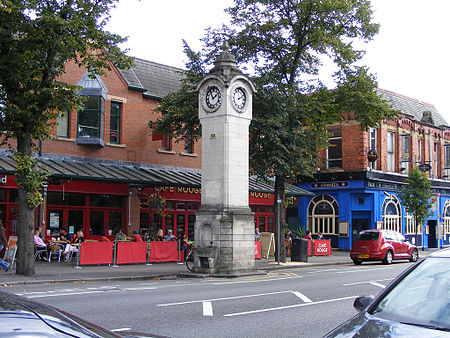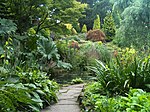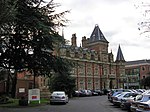Didsbury

Didsbury is a suburban village in Manchester, Greater Manchester, England, on the north bank of the River Mersey, 5 miles (8 kilometres) south of Manchester city centre. The population at the 2011 census was 26,788.Within the boundaries of the historic county of Lancashire, there are records of Didsbury existing as a small hamlet as early as the 13th century. Its early history was dominated by being part of the Manor of Withington, a feudal estate that covered a large part of what is now the south of Manchester. Didsbury was described during the 18th century as a township separate from outside influence. In 1745 Charles Edward Stuart crossed the Mersey at Didsbury in the Jacobite march south from Manchester to Derby, and again in the subsequent retreat.Didsbury was largely rural until the mid-19th century, when it underwent development and urbanisation during the Industrial Revolution. It became part of Manchester in 1904.The Royal Society for the Protection of Birds was formed in Didsbury in 1889.
Excerpt from the Wikipedia article Didsbury (License: CC BY-SA 3.0, Authors, Images).Didsbury
Old Oak Street, Manchester Didsbury
Geographical coordinates (GPS) Address Nearby Places Show on map
Geographical coordinates (GPS)
| Latitude | Longitude |
|---|---|
| N 53.4166 ° | E -2.2311 ° |
Address
Old Oak Street
Old Oak Street
M20 6WF Manchester, Didsbury
England, United Kingdom
Open on Google Maps










